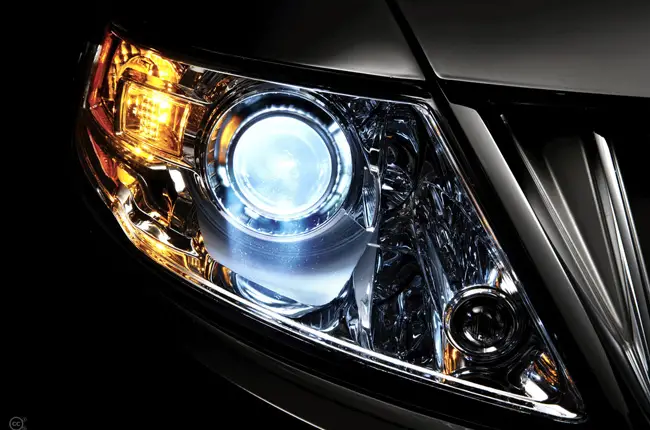As a driver, you may have noticed that your car lights dim when you accelerate, only to brighten back up when you slow down. You might wonder Why Do Car Lights Dim When Accelerating? This phenomenon can be perplexing and concerning, especially if you’re driving at night or in inclement weather. However, rest assured that this is a common occurrence and is not necessarily a sign of a significant problem with your vehicle.
In this article, we’ll explore the reasons why car lights dim when accelerating, and what you can do to alleviate the issue. We’ll examine the physics of how a car’s electrical system works and how it interacts with the engine when accelerating. We’ll also look at common causes of dimming lights, such as a weak battery or a faulty alternator.
Understanding why your car lights dim when accelerating can help you diagnose and fix the problem quickly, preventing more significant problems down the road. It can also give you peace of mind when driving in low light situations, knowing that your vehicle is functioning correctly.
Why is my car lights dimming when accelerating?
Car lights dimming when accelerating is a common question that many drivers have. The answer lies in the way that car batteries and alternators work. When you accelerate, your car’s engine requires more electricity to power all of the electrical components, such as the fuel pump and ignition system. This increased demand for electricity causes a drop in voltage, which in turn causes your car’s headlights to dim. This is because the car’s battery is not able to supply enough power to meet the increased demand.
However, once you reach a steady cruising speed, the demand for electricity decreases, and the headlights return to their normal brightness.
It is also possible that a faulty alternator or loose battery connections could be the cause of dimming headlights, so it is important to have these components checked by a mechanic if you notice this issue persisting.
The role of electrical systems
Why do car lights dim when accelerating? One possible answer to this question is the role of electrical systems in your car. Electrical systems in your car such as the alternator and battery work together to power the various electrical components in your vehicle, including the lights.
When you step on the accelerator, the engine requires more power to work, which can put a strain on the electrical system. This additional demand for power can cause the voltage to fluctuate, leading to a drop in the voltage supplied to the lights. As a result, the lights may appear dimmer than usual.
It’s important to note that this is a normal occurrence, but if you notice a significant change in the brightness of your lights or other electrical issues, it may be time to have your car inspected by a professional mechanic.

Common reasons for dimming lights in vehicles
If you’re wondering why car lights dim when accelerating, it’s important to understand the common reasons for dimming lights. Dimming headlights, dashboard lights, or interior lights can be caused by a variety of reasons. One of the most common causes is a weak or failing alternator. The alternator is responsible for charging the car’s battery and powering the electrical system during operation.
When accelerating, the alternator typically needs to work harder to keep up with the increased demand for power. If it’s not functioning properly, it may not be able to keep up with the electrical needs of the vehicle, causing the lights to dim.
Other common reasons for dimming lights include loose or corroded battery connections, a weak battery, or a faulty voltage regulator.
Possible factors that leads to flickering lights
If you have ever wondered why car lights dim when accelerating, there are a few possible factors that could lead to this phenomenon. One of the most common factors is a weak or failing alternator. The alternator is responsible for providing power to various electrical components of your car, including the lights, and if it is not functioning properly, it may not be able to maintain the required voltage levels.
Another possible cause is a weak battery, which may not be able to provide enough power to the alternator when the engine is revving up.
Also, loose or corroded wiring connections could also lead to dimming lights, as they can cause voltage drops and reduce the overall power supply to the lights.
If you are experiencing dimming lights while accelerating, it is best to have your car inspected by a professional to determine the root cause and prevent any further damage or safety issues.
Alternator and Battery Problems, Belt or Tensioner Issues, Voltage regulator needs replacement, Loose or corroded connections, Overloading the electrical system; are some other factors why your vehicle lights are dimming when accelerating.
Importance of proper car lights diagnosis
When you’re driving your vehicle, especially at night, the last thing you want is for your headlights to dim or flicker. This can be dangerous, not only for you but also for other drivers on the road. That’s why it’s important to understand why car lights dim when accelerating and to properly diagnose and fix any issues.
Proper car lights diagnosis is crucial because it not only ensures your safety on the road, but it also prevents damage to your car’s electrical system.
Dimming headlights can be caused by a number of issues, including a weak battery, a failing alternator, or a loose or corroded connection. By properly diagnosing and addressing these issues, you can ensure that your car’s lights stay bright and reliable, no matter how fast you’re accelerating.
Conclusion
In conclusion, the dimming of car lights while accelerating is a common phenomenon that can be attributed to the electrical demands of the vehicle. When the engine is revved up, more power is needed for the alternator to charge the battery and run the various electrical components of the car. This increased power demand can cause a momentary drop in voltage, leading to a temporary dimming of the lights.
However, if the dimming persists or is accompanied by other electrical issues, it may be a sign of a more serious underlying problem that requires attention. Keeping your car’s electrical system in good working order can help prevent such issues and ensure a safe and comfortable driving experience.
If you’re experiencing dimming lights, it’s important to have your car inspected by a qualified mechanic to diagnose and address the issue before it leads to more serious problems.
Disclaimer
Hi, just letting you know that all products recommended here have been used by me, or are properly researched to ensure they are the best you are getting without bias.
I am also an affiliate for certain Amazon products and this means that some links here are affiliate links. If you purchase an item through any of them, I MAY earn a commission at no extra cost on you.
